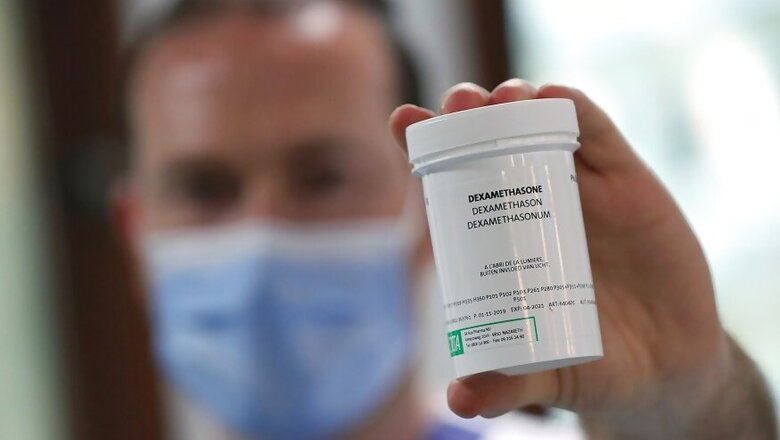
views
London: An Oxford professor whose team discovered the use of dexamethasone in preventing deaths among seriously ill Covid-19 patients says use of the drug can bring “very significant” benefits for India.
This is particularly the case given the upward rise in the number of cases in parts of India, particularly Delhi and Mumbai. That curve means the discovery has come in time for thousands of patients in India.
“I hope it can have a significant impact,” professor Peter Horby from the Nuffield Department of Medicine at the University of Oxford that led the research told CNN News18. “It’s a drug that we’ve shown works among hospitalised patents who require oxygen or mechanical ventilation.”
Among patients who are just on oxygen, “On a face mask, for example, it reduces the risk of death by about 20 per cent,” Horby said. “And in patients who are even sicker, who require mechanical ventilation, it reduces the risk of death by about 35 per cent.”
Given the scale of the spread of coronavirus, that can translate into huge numbers of lives saved. “Among 30,000 hospital deaths that we’ve had in the UK, about 5,000 could have been prevented by the use of dexamethasone,” Horby said.
The discovery has come late for too many in Britain which is now well past its peak in the spread of the virus. But it’s a timely discovery for India and other countries where the virus is still spreading, such as many countries in Latin America.
Just how does it work? “It’s an anti-inflammatory drug, so in patients who are quite sick, it reduces inflammation in the lung and helps them recover,” he said.
But he sounded a note of caution. “It’s very important to get the message across that this is not a drug for people at home and not very sick, because those patients don’t have the inflammation, and the drug may make them worse.”
Is there an in-between stage between ventilation and home treatment where this drug could help?
There is, and appears to be one where “patients have significant respiratory illness, and they have the need for oxygen before the need get to ventilation,” he said. “That is really the largest number of patients in hospitals, because you wouldn’t be in hospital unless you were quite sick, and for them there’s a benefit.”
In India that in-between stage is currently crucial given a shortage of ventilators in some hospitals. If patients are in a state where they need oxygen, then this drug could well save them from getting to a stage where they will need a ventilator. “It can probably prevent most people from going on to ventilation, so in patients who require oxygen even via a mask, this drug would have a benefit,” said Horby.
And if they do get on to a ventilator, the drug could save significantly more lives than mechanical ventilation without this drug might.
The Oxford trials were carried out under the RECOVERY (Randomised Evaluation of COVid-19 thERapY) programme established in March. The first drug to be tested was hydroxychloroquine for which the results came in about two weeks back. “With that we did not see a benefit in hospitalised patients,” the professor said.
That leaves four more drugs or lines of treatment to be tested. Next in line is test results for lopinavir-ritonavir (a combination of two drugs), an HIV drug, which will be the next drug we will get an answer on,” he said. “I suspect that will be in about one month’s time.”
Following from there the Oxford department will test azithromycin, an antibiotic, and then tocilizumab, another strong anti-inflammatory. The department also plans to test convalescent plasma. “Those last three will probably take some time because the UK now has very few cases, so I don’t think we’ll get an answer on those probably until next year,” said Horby.



















Comments
0 comment